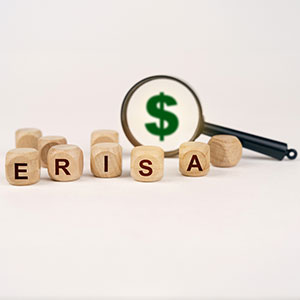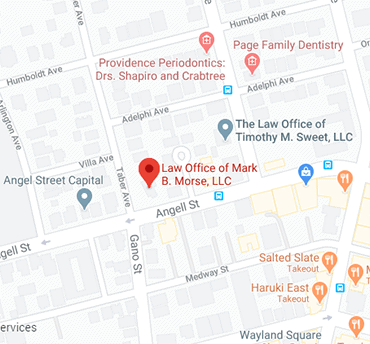Who Is Actually Covered Under ERISA?
 Under ERISA, the individuals who benefit or receive the benefit of the ERISA protection are the plan beneficiaries or plan participants. Plan beneficiaries are the people who are receiving a benefit from the plan. They are receiving the healthcare benefit , the retirement benefit, or the long-term disability benefit under the provisions of the plan. They are the ones who the plan is supposed to protect. These are the people who are covered under the benefits of the plan. The administrators, the plan fiduciaries, and the plan itself, are separate legal entities. These are the parties whose actions are dictated by the law that is provided under ERISA.
Under ERISA, the individuals who benefit or receive the benefit of the ERISA protection are the plan beneficiaries or plan participants. Plan beneficiaries are the people who are receiving a benefit from the plan. They are receiving the healthcare benefit , the retirement benefit, or the long-term disability benefit under the provisions of the plan. They are the ones who the plan is supposed to protect. These are the people who are covered under the benefits of the plan. The administrators, the plan fiduciaries, and the plan itself, are separate legal entities. These are the parties whose actions are dictated by the law that is provided under ERISA.
What Types Of Plans Are Subject To ERISA Laws?
The types of plans that are subject to ERISA laws are often one of the more complicated issues to discuss. Employer sponsored non-government non-church plans, is the broad category. By “church,” I mean religious plans. That’s a broad category of what is covered under ERISA. However, the devil is in the details, and so, the questions arise: Is this an employer-sponsored plan? Is this a government type plan? Is the hospital involved owned by the archdiocese, and governed by a church sponsored plan? Does the hospital employee fall under a religious plan or is it governed under ERISA?
Indian tribes are considered governmental entities. Consequently, if you are a casino worker or work for a casino run by an Indian government, the question may arise whether the Casino Plan is governed by ERISA.
Some entities may have waived the non-governmental provision to allow it to fall under ERISA. Others, however, might claim the immunity, and therefore, not be governed by ERISA. Thus, there are a lot of details to determine whether a plan falls under ERISA or not.
What Are My ERISA Rights Or Rights Under ERISA?
Essentially, a person’s rights under ERISA are governed by the plan’s documents, and they are set forth and defined in the plan documents. That’s the short answer. Again, the devil is in the details, and that is to interpret the plan documents to determine what sort of rights and privileges are allowed through the plan. For example, in a disability plan, the main question is, “Am I disabled under the plan pursuant to the plan provisions?” As such, the plan will define what a disability means. In order to qualify for a disability, you have to fall within that definition. The argument generally leans to whether you do or do not fall within that very broad definition of what a disabled person is pursuant to the terms of the plan. And so, to actually make that determination, it becomes a much more fact-intensive inquiry with many different aspects that need to be explored and developed.
How Can I Secure My Benefits Under ERISA?
Most of ERISA plans have a very strict protocol as to how to make a claim for benefits. Most of these protocols have to be followed strictly in order to go from phase 1 to phase 2, and ultimately, to secure your plan benefits. The very first step is to read the provisions of the plan, and to make a claim in a timely fashion. Following the claim, it is important to follow the steps necessary to document your claim. If the claim is denied, you can follow the next step to appeal the denial of the claim. There are usually strict time procedures and reading of what needs to be done.
Primarily, your rights under ERISA are to be treated fairly by the plan pursuant to the plan documents. They are required to treat plan participants in an equal fashion, which doesn’t really mean that all plan participants are equal. Oftentimes, they have different classes of plan participants that are allowed different benefits. It may be based on the person’s employment status or the plan benefits that the individual elects. For example, as a plan participant, you might elect a greater plan benefit, and as long as you are treated equally with all other participants who elect that same plan benefit, that’s what you’re entitled to receive under ERISA.
What Remedies Are Available To ERISA Plan Participants In An Action For Benefits Under Any Plan?
The remedies that are available to ERISA plan participants dovetails with what rights a participant has through ERISA. The remedies that are available to you under ERISA are to make sure that you receive all the benefits you are entitled to pursuant to the Plan. If you’re considered disabled under a disability plan, and if you meet that definition of disability, you are entitled to the benefit that is allowed under the plan. That is all spelled out in the plan document. The amount of the benefit that you receive is spelled out in the plan documents as well. Essentially, you’re entitled to nothing more nor anything less than what the plan documents allow you to receive. Once again, it becomes a question of interpretation of whether the plan documents allow a particular benefit. If so, what do they allow and to what extent? That’s where the challenge arises. It is in the interpretation of these documents, and to put the client’s best foot forward to determine what benefits are going to be allowed pursuant to those documents.
For more information on ERISA In Rhode Island, an initial consultation is your next best step. Get the information and legal answers you are seeking by calling (401) 831-0555 today.

Call Now To See How We Can Help!
(401) 831-0555

